Introduction
Welcome to a unique exploration of Peter Paul Rubens’ masterpieces, where we will be diving into the world of poetry to reflect upon five of his most remarkable paintings. Through our poetic journey, we aim to take you on an emotional ride, where each brush stroke, each hue, and each emotion will be brought to life through the art of words. Our journey will take us through the dark and powerful biblical narratives of Daniel in the Lions’ Den, Cain Slaying Abel, and Samson and Delilah, to the ethereal and mythological realm of The Judgement of Paris. We will conclude with the poignant and haunting realities of war depicted in The Horrors of War. Join us as we venture into the heart of Rubens’ masterpieces, reimagined through the art of poetry.
Daniel in the Lions’ Den

This painting depicts the story of Daniel, who was thrown into a den of lions for refusing to worship the king. According to the biblical story, an angel protected Daniel from the lions, and he emerged unharmed. Rubens’ painting captures the dramatic moment as the lions gather around Daniel, with an angel hovering above to protect him.
Reflections
I’m all alone, surrounded by monsters who have more pity on me than you. If I pray, would you soothe them and let me find a way out or would you let them be as they will be doing nothing wrong. I am alone in the dark, having only hope in my heart that you will not give up on me, or maybe I should stand up back on my feet and try to claw my way out as it is all on me. Even if I didn’t get myself in, I can get myself out.
If I Pray
If I pray Would you listen? If it is indeed my last day Would you see, Along those dark lines of fate, A happy ending for me? If I cry Would it help? With these monsters lurking around Would you say, Deep within their hearts, They may find mercy? If I charge, Would you help? Against crazy odds, Would you believe, The strength of my back alone, Would have me live? If I stand still, Would you come? And from this den, Would you think, This dying ship, You wouldn’t sink? But what if I stop praying No more crying No need to charge or stand still It’s all about my power of will This dark hole is no darker than most Being in it I thought it was the worst But every hole is worse Every man has his curse I’m no more precious Life existed long before me And life after me will exist I cannot wait for you to save me I have all it takes to resist I cannot hide behind my whining I can stay and pray and die With that eternal desperate why Or I can rise and refuse That I can do nothing.
Literary Analysis
In this poem inspired by Rubens’ painting, Daniel in the Lions’ Den, the author masterfully explores themes of faith, doubt, self-reliance, and the human condition. The poem is divided into stanzas that mark the protagonist’s emotional journey from uncertainty to empowerment, reflecting the internal struggle faced by Daniel as he contemplates his fate.
The opening stanzas focus on Daniel’s questions and pleas to a higher power, questioning whether prayer and tears might bring divine intervention or mercy from the beasts that surround him. These stanzas convey a sense of vulnerability and helplessness, as the protagonist grapples with the uncertainty of his situation.
As the poem progresses, the tone shifts to a more assertive and self-reliant one, with Daniel considering whether he can muster the strength to fight back or simply stand still and await rescue. This transition showcases the protagonist’s internal conflict between reliance on divine assistance and personal determination, highlighting the broader theme of human resilience in the face of adversity.
In the final stanzas, the poem reaches a powerful resolution, as Daniel rejects the idea of waiting for divine intervention and embraces his own agency. The protagonist recognizes the darkness of his situation as part of the human experience and comes to terms with the fact that life will go on, with or without him. This epiphany serves as a catalyst for Daniel’s decision to rise up and resist his fate, embracing the power of his own will.
The poem effectively captures the emotional journey of the protagonist, inviting readers to reflect on their own beliefs, personal strength, and the human condition. The use of vivid imagery, powerful questions, and the progression from uncertainty to self-empowerment creates a moving and thought-provoking narrative that resonates deeply with the reader.
In conclusion, the poem serves as a compelling exploration of faith, doubt, personal agency, and the universal experience of facing adversity, offering a poignant reminder of the power of human resilience.
The Judgement of Paris
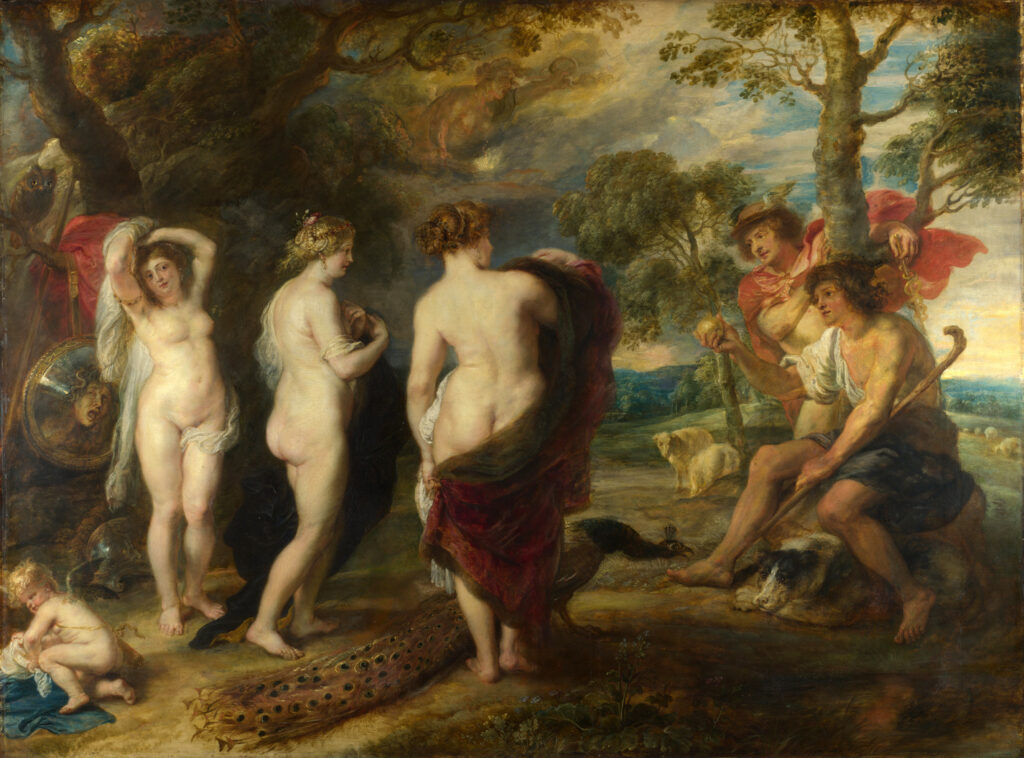
In Greek mythology, Paris was tasked with choosing the most beautiful goddess among Hera, Athena, and Aphrodite. Rubens’ painting depicts the moment when Paris awards the golden apple to Aphrodite, who has promised him the love of the most beautiful woman in the world, Helen of Troy.
Reflections
So you want me to decide? Why because I’m prettier than you? Does that make me a judge? Does that give me the right to bring war and misery because I can’t see a way out without an unnecessary fight. I wish I could bail out, but you forced my hand. I chose beauty for I care for no war or wisdom, nor wealth or a kingdom. I wish for a heart, but your help helped me start a tragedy. Was it you? Or was it all me?
Look at Me
Look at me Look at me Am I not the best Come along with me on a night And forget all the rest No love is love after me Nor will it ever be Listen to me Just listen I will place your hand On the wealth of nations And all those games of politics Will never hurt you For I will always be there Watching over you I won’t give you as much Just what every man wants Think my young prince Just think I won’t flatter I won’t wink I’ll talk brain to brain Apart from which There can be no gain All will fade and be lost But my gift is forever Hold it ladies, let me see The fate of the world depends on me Whomever I choose is wrong For why would I be the one To get any of those gifts Why am I not just a man Just like everyone I just do what I can And I get what I get Happy about my fate As long as I don’t wait For gifts to fall into my lap Not do I place a bait To get anyone into my trap The love you offer will never be true The fortune you offer I have not earned The wisdom you offer doesn’t suit a fool How can accept those gifts from any one of you And for what, to score a point amongst the gods You let all humans lose And then you ask me to choose How did your wisdom let that pass I won’t play your game Though I know it’s all the same You always get it your way People like me come and go But your seats of power Will always stay And sooner or later A foolish prince you’ll sway And what a shame As millions will die For you to play a game.
Literary Analysis
In the stirring poem “Look at Me” by D. H. Phoenix, inspired by Peter Paul Rubens’ painting “The Judgment of Paris,” the author delves into themes of power dynamics, personal choice, and the human consequences of divine intervention. The poem, which initially explores the mythological aspects of the story, seamlessly transitions into a reflection on the real-life implications of the power struggles between those who hold power and those who do not. Through this insightful reimagining, the poet invites readers to contemplate the nature of temptation, the weight of individual decisions, and the enduring struggle between powerful entities and the individuals caught in their machinations.
As you embark on a literary analysis of this thought-provoking poem, you will uncover the richness of its emotional depth, the intricacy of its imagery, and the powerful message it conveys. With a keen eye, you will explore the poem’s unique perspective on the tale of Paris, as well as the broader implications of the narrative for our understanding of power, choice, and responsibility. In doing so, you will come to appreciate not only the artistry of the poem itself but also its profound resonance with the human experience.
In the poem “Look at Me” by D. H. Phoenix, inspired by Peter Paul Rubens’ painting “The Judgement of Paris,” the author weaves a rich narrative that transcends the mythological origins of the story and delves into the realms of power dynamics, the nature of gifts and temptations, and the consequences of human choices. The poem is characterized by its introspective and contemplative tone, as well as its use of vivid imagery and thought-provoking questions.
The poem begins by exploring the seductive allure of the three goddesses—Aphrodite, Athena, and Hera—each offering their unique gifts of love, wealth, and wisdom to Paris. The poet captures the enticing nature of their offers and the inevitable struggle that Paris faces as he considers which gift to accept. This section of the poem highlights the timeless appeal of these desires, which still resonate with readers today.
As the poem progresses, the speaker shifts focus to a more introspective and philosophical stance, questioning the fairness of the choice presented to Paris and the implications of his decision. This change in tone reveals the protagonist’s growing awareness of the implications of his actions and the power dynamics at play between the gods and mortals.
The poem then transitions to a more grounded and realistic exploration of power and the consequences of the choices made by those who wield it. The speaker acknowledges the futility of trying to resist the will of the gods, recognizing that power structures will always exist, and those in positions of authority will continue to make decisions with far-reaching consequences.
In the final stanzas, the poem reaches its climax with a powerful rejection of the gifts offered by the goddesses, as the speaker asserts that love, fortune, and wisdom should not be accepted without merit or effort. This rejection is a critique of the arbitrary nature of the gods’ game and the devastating consequences that may arise from the pursuit of power and self-interest.
In conclusion, “Look at Me” is a compelling and thought-provoking poem that transcends the mythological narrative of Rubens’ painting and explores deeper questions about power dynamics, human choices, and the consequences of our actions. The poem’s vivid imagery, introspective tone, and profound insights resonate with readers and invite them to reflect on the nature of temptation, the responsibilities of those in power, and the importance of self-determination.
Cain Slaying Abel

This painting illustrates the biblical story of Cain and Abel, in which Cain murders his brother Abel out of jealousy. Rubens’ painting depicts the violent act, with Cain shown wielding a large club to strike Abel, who is lying on the ground.
Reflections
Why do you see me as a threat? If I’m better than you, it’s not because I wanted to, but I’m only doing what I see is best. I’m not judging you. I actually envy you for not caring about the world around you. I envy your ability to kick back and relax when all eyes are watching, and all expect you to do your best. I never want to be better than you. I have always wanted to be like you, but your eyes and mine never saw the same picture. Although we both had the same life; each has his version to remember.
All You Got
I’m all you got But if you must Remember that we can share it all No house is too small No greed is too big To which would you stick? In my heart I know You rush to finish If too slow You will rethink Our tears, our laughs Together If you blink You will remember But if you look away I will be just like another monster For which You have a thousand reasons to kill And you will I won’t stop you I’m not saying these words to torment you I’m saying these words before I go For I don’t know Out there If there will be anyone As close as you to tell If there will be anyone As close as you to share So I’m telling you I’m all you got But if you must Do what you have to do I’ll always be with you.
Literary Analysis
In the hauntingly evocative poem inspired by Peter Paul Rubens’ painting, “Cain Slaying Abel,” Phoenix masterfully captures the complex emotions and psychological turmoil at the heart of the biblical narrative. Through the lens of Abel’s perspective, the poem delves into themes of brotherhood, jealousy, inner conflict, and the transformative power of our actions. The tender and introspective tone, complemented by vivid imagery and poignant moments, invites readers to examine the fragile nature of human relationships and the consequences of destructive emotions.
As an exploration of the tragic bond between two brothers, the poem sheds light on the dynamics of love, resentment, and the ultimate consequences of unchecked envy. The author skillfully employs a first-person perspective to offer an intimate glimpse into Abel’s thoughts and feelings, providing a unique and deeply personal understanding of the narrative. This powerful reimagining of a timeless story serves not only as a tribute to Rubens’ painting but also as a reminder of the enduring nature of human connection, even in the face of the darkest emotions.
In this poem inspired by Peter Paul Rubens’ painting, “Cain Slaying Abel,” the author delves into themes of brotherhood, jealousy, inner conflict, and loss. The poem is written from the perspective of Abel, who addresses Cain in a tender and contemplative tone, acknowledging the impending act of violence that will result in his death.
The opening lines of the poem explore the idea of sharing and coexistence, with Abel asserting that no house is too small and no greed is too big to overcome. This sentiment emphasizes the bond between the brothers, while also hinting at the destructive nature of jealousy that ultimately drives Cain to commit fratricide.
As the poem progresses, the tone becomes more urgent, with Abel pleading for Cain to reconsider his actions. The lines “Our tears and laughs / Together / If you blink / You will remember” serve as a poignant reminder of their shared history and emotional connection. By contrasting their past happiness with the present threat of violence, the poem highlights the tragedy of their situation.
The protagonist acknowledges the potential for Cain to view him as a monster, a projection of his own fears and insecurities. This transformation from brother to perceived threat reveals the depth of Cain’s inner turmoil and the destructive power of jealousy.
In the final stanzas, Abel accepts his fate and offers a message of forgiveness and eternal presence, stating “I’ll always be with you.” This closing sentiment emphasizes the strength of their bond and the enduring impact of their relationship, even in the face of such a tragic act.
Overall, the poem is a powerful exploration of the complex emotions and inner conflict experienced by both Cain and Abel. The vivid imagery, emotional depth, and haunting tone effectively convey the tension and tragedy of the story, inviting readers to reflect on themes of jealousy, brotherhood, and the consequences of our actions. The poem is a moving and thought-provoking piece that successfully captures the essence of Rubens’ painting while offering a unique perspective on the biblical narrative.
Samson and Delilah

This painting depicts the biblical story of Samson, who falls in love with Delilah, a Philistine woman who betrays him by cutting off his hair, which is the source of his strength. Rubens’ painting shows the moment when Delilah is cutting Samson’s hair, with a group of Philistine soldiers lurking in the background.
Reflections
All the strengths in the world I had but one, the strength to stand before you and not fall deeply in love with every aspect, with every breath. It is not my fault that I looked around and saw all the great achievements historians were sharpening their quills to document meant absolutely nothing. I could give them all up in the blink of an eye if I have you.
They say you betrayed me. They say I was a fool to place my trust in you. They say and say but never understand that falling can be controlled by no man. They do not understand what I saw in you past the lies and deceit. It’s physical they say, but they do not understand. They do not know that I was the man. I could get any woman I wanted but it was you the I chose on whose lap to place my head and rest knowing all the world was waiting for one off-guard moment of mine to converge on me and stop the time, but they do not understand that I came in willingly, I chose the rope, the executioner, the sentence for all these did not matter. My head is finally resting where it always wanted to rest, and once a victor, nothing can take that away. They don’t understand. They just say and say but never understand…
I Knew
On your warm lap, I waned, Surrendered my power everything not as they thought, I knew— Everyone around Everything just feigned— My head on your lap was all I sought And damn it, I knew my doom so imminent Too foolish to rush, But for once I knew my heart’s desire— let the world be Whatever the world wants to be Too long I’ve thought Let me feel for once I know none is real But what is? A moment can be— Afterwards the world can burn, The dreams the fallacies the tragedies all are moments we chose to enliven forever let this be mine my one treasured memory and the world may burn nothing’s afterwards but fire and ash.
Literary Analysis of I Knew
In this poem inspired by Peter Paul Rubens’ painting, Samson and Delilah, the poet masterfully captures the essence of vulnerability, desire, and the fleeting nature of life’s moments. The poem delves into themes of love, surrender, and the inevitability of fate. Through the use of vivid imagery and a contemplative tone, the poem encourages readers to reflect on the transient nature of existence and the significance of the choices we make.
The opening lines depict Samson’s surrender to Delilah, finding solace in her warmth and embracing his vulnerability. This is reflected in the imagery of his head on her lap, symbolizing his willingness to relinquish his power and control. The poem presents the idea that this surrender was not due to naivete, as others might have thought, but rather a conscious choice, driven by a desire to experience genuine connection and emotion.
The poem then delves into the theme of illusion, suggesting that the world around Samson is nothing more than a facade. This creates a sense of disconnection between the protagonist and his surroundings, as he chooses to prioritize his emotional desires over the reality of the world. The poet emphasizes the significance of individual moments, implying that they are the only aspects of life that hold true meaning.
As the poem progresses, it becomes increasingly introspective, with the protagonist reflecting on the importance of feeling and experiencing life fully, despite its fleeting nature. The poem hints at the impending doom Samson faces, yet highlights his willingness to embrace it in exchange for a single, cherished moment. The imagery of the world burning, followed by fire and ash, underscores the transient nature of life, and the ultimate insignificance of worldly concerns in the face of true emotional connection.
In conclusion, this poem offers a poignant exploration of vulnerability, desire, and the ephemeral nature of life. It invites readers to consider the choices they make and the moments they hold dear, reminding them that despite the uncertainty and impermanence of existence, genuine connections and cherished memories remain invaluable.
Consequences of War
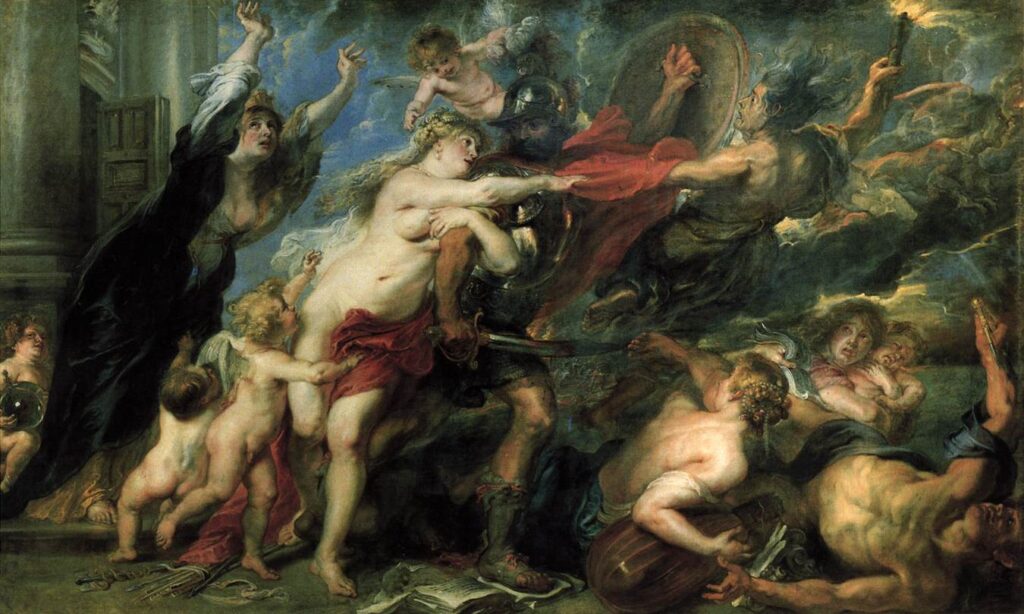
“Consequences of War” or “Horror of War” is a painting by Rubens that depicts the horrors and devastation of war, particularly the Thirty Years’ War that ravaged Europe during the 17th century. The painting was commissioned by Ferdinando II de’ Medici, and was painted in oil on canvas between 1638-1639. Rubens used a variety of symbols, both contemporary and ancient, to convey the message of the painting and to deplore the state of the continent. The painting is now housed in the Palazzo Pitti in Florence, Italy, and is considered one of Rubens’ masterpieces.
Reflections
What good has come from any war since the dawn of time. Some were fought for vengeance and some for glory, and some don’t even have a story, but they all killed millions as they still do, and no one ever knows or will ever do what was wrong, and what was true. Just hear me out and stop. Just rest and let this one go for you and I may finally die slow as men. We might finally be who we were born to be, just humans.
Don’t Go
Don’t go I can’t do it all over again Washing the stains When you come back And I’ve been here for long I know you never come back. Don’t go Each time a piece of you is lost The dust upon your heart Builds up dust And I can’t be near anymore That monster in my bed I no longer trust Don’t go Thousands will live Don’t be in bars a drunken hero Searching in vain for glories You’ve never been any good At telling stories Don’t go I lost many heroes in the fray They’re right here still, you’ll say Look again, they’re only shadows Of those great men they once were Don’t go about another way to stir Don’t go I won’t be manning windows With sleepy eyes and weary heart Waiting for your return When you kill men and women and children You’re no longer my own
Literary Analysis
In “Don’t Go” by D. H. Phoenix, a poem inspired by Peter Paul Rubens’ painting “The Consequences of War/The Horrors of War,” the author delves into themes of loss, the human cost of war, and the inevitable transformation of those who participate in it. The poem’s somber and pleading tone effectively conveys the anguish of the speaker, who implores a loved one not to go to war.
The poem begins with the speaker’s plea, “Don’t go,” which is repeated throughout the poem as a refrain, highlighting the urgency and desperation of the plea. This repetition underscores the emotional weight of the speaker’s message and the inescapable cycle of loss and destruction that war brings.
In the subsequent stanzas, the poet explores the consequences of war on both an individual and societal level. The lines “Each time a piece of you is lost / The dust upon your heart / Builds up dust” reveal the insidious and lasting impact of war on the individual, as the experiences of violence and trauma accumulate and transform the person beyond recognition. This transformation is further emphasized in the stanza, “That monster in my bed / I no longer trust,” where the speaker acknowledges the irreparable changes war brings to the individual and their relationships.
The poem also touches on the delusions of heroism and glory associated with war, as the speaker suggests that searching for these attributes is a futile endeavor, as the soldier “never been any good / At telling stories.” This critique of the romanticized notions of war exposes the harsh reality and the immense human cost that is often overlooked.
The poem concludes with a poignant portrayal of the emotional toll that war takes on those left behind, as the speaker proclaims that they will not be waiting for the soldier’s return, since the acts of violence they commit make them “no longer my own.” This final declaration serves as a powerful statement on the devastating effects of war on both the individual and their loved ones.
Overall, “Don’t Go” is a compelling and emotive exploration of the human cost of war, capturing the anguish, loss, and transformation experienced by those involved and those left behind. The poem’s somber tone, vivid imagery, and evocative language effectively convey the tragedy and devastation that war brings, inviting readers to reflect on the consequences of violence and the importance of compassion and understanding.
Conclusion
I hope this poetic reflection on Rubens’ masterpieces has inspired you to see his art in a new light. Art and poetry are both mediums that express emotions and ideas in a way that words alone cannot. Through our exploration, we have seen how the themes in Rubens’ paintings transcend time and continue to evoke strong emotions in us today. As we bring this journey to a close, let us remember the power of art in connecting us to our past, present, and future.
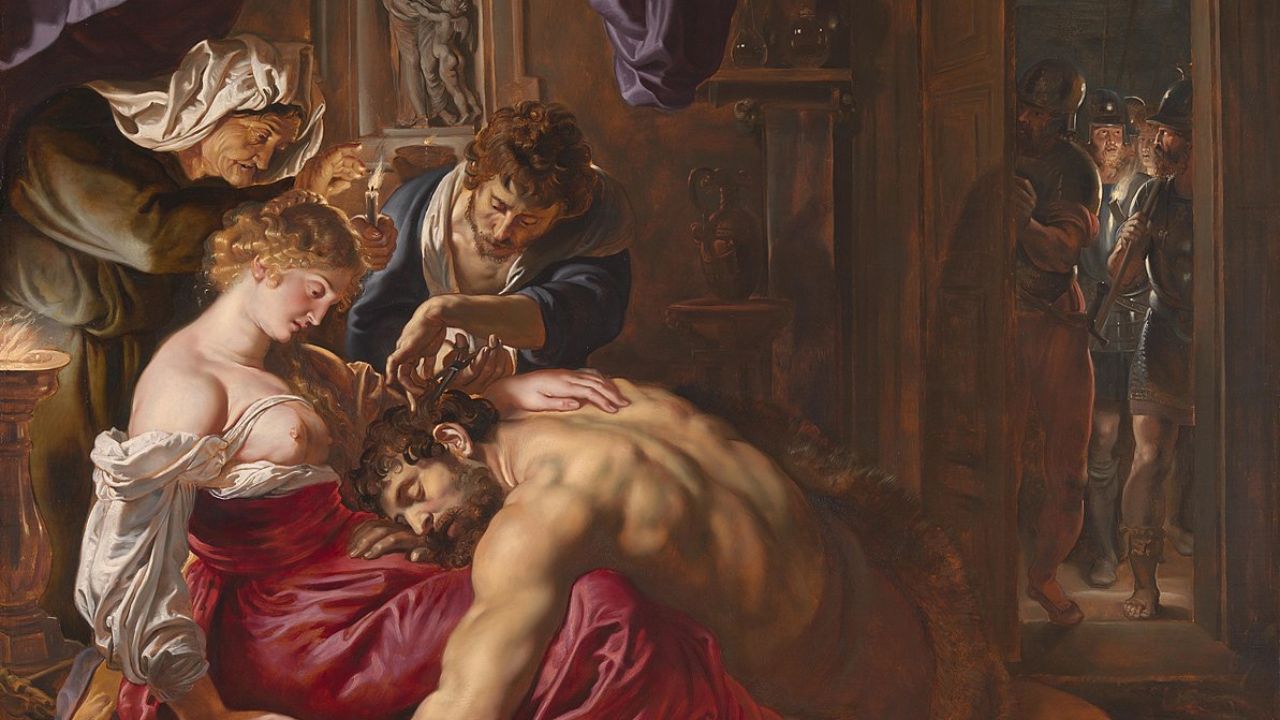
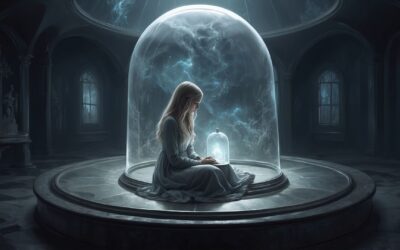
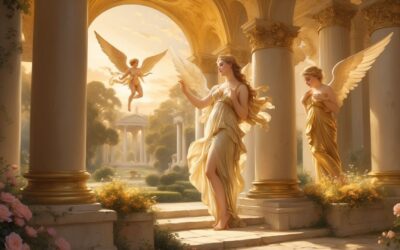







0 Comments